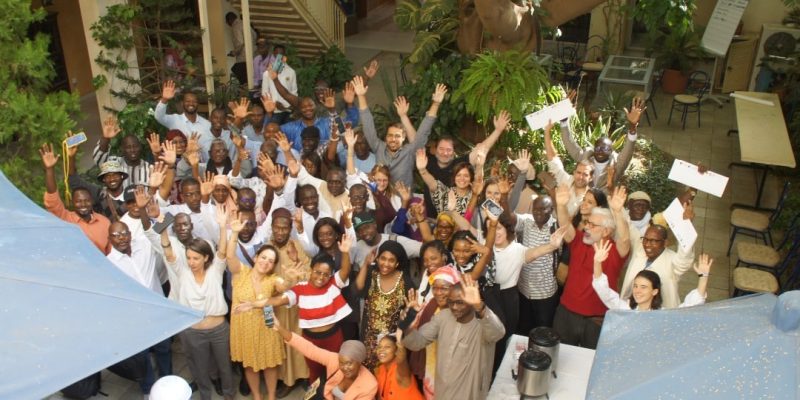On the final day of the Maîtrise et adaptation des villes intermédiaires au Sahel (MAVIL) forum, held in the historic city of Saint-Louis in Senegal, Jean Marc Pradelle, President of the international association GRDR Migrations-Citoyenneté-Développement, was delighted with the new thinking that had led to progress on the resilience of Bakel (Senegal), Kaedi (Mauritania) and Kayes (Mali). Here's a look back at this major event for the future of urban development in West Africa.
On the final day of the Maîtrise et adaptation des villes intermédiaires au Sahel (MAVIL) forum, held in the historic city of Saint-Louis in Senegal, Jean Marc Pradelle, President of the international association GRDR Migrations-Citoyenneté-Développement, was delighted with the new thinking that had led to progress on the resilience of Bakel (Senegal), Kaedi (Mauritania) and Kayes (Mali). Here’s a look back at this major event for the future of urban development in West Africa.
70 local councillors, representatives of development partners and civil society took part in the Forum “What trajectories for the cities of the Senegal River? A look at Kayes, Kaédi and Bakel”, held from 12 to 14 December 2023 in Saint-Louis, Senegal. These three days of debate and multicultural sharing between the cities of the Sahel and Europe focused on issues essential to the development of intermediate cities, including adaptation to climate change, development infrastructure (water, sanitation, schools, electricity) and cross-border security.
The interactive and at times heated discussions began with the issue of gender equality, which Diodio Diadiou believes is crucial to achieving all the Sustainable Development Goals (SDGs), particularly in West Africa. The Senegalese academic, who specialises in social geography, drew on the famous quote by French researcher Yves Lacoste, “la ville est pensée au masculin” (“the city is thought of in masculine terms”), to denounce the poor access of West African women to land ownership, as well as their vulnerability in the face of the floods and prolonged droughts affecting the sub-region.
Architect Luc Gnacadja made extensive use of the word co-construct to encourage greater local involvement in urban planning. Benin’s former environment minister also stressed the need to take account of cultural aspects and demographic change. “Climate resilience is above all cultural. We explored the challenges of rapid urbanisation south of the Sahara, where the rural exodus accounts for only 2/5 of urban population growth. With 97% of urban areas having between 10,000 and 300,000 inhabitants”, he stressed.
Read also- The growth of towns on the Senegal River discussed from 12 to 14 December in St-Louis
The question of funding was also raised at length, because without capital, the projects of the local authorities of Bakel (Senegal), Kaedi (Mauritania) and Kayes (Mali) remain drowned in the Senegal River that separates them. With this in mind, the diaspora has been invited to invest massively in agro-ecology, drinking water installations, waste recycling and solar kits so that their home towns can make progress on the ecological transition. In this respect, the team behind the “Repat Africa” (return migrants) platform set up in 2019 has announced that it has already raised €300,000.
Benoit-Ivan Wansi, special envoy in Senegal






